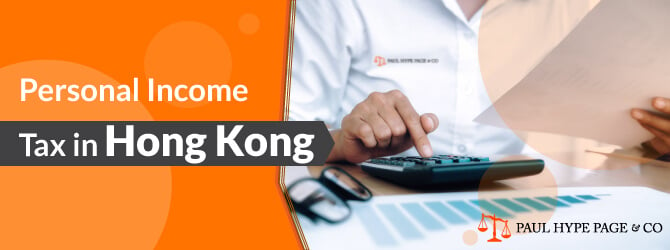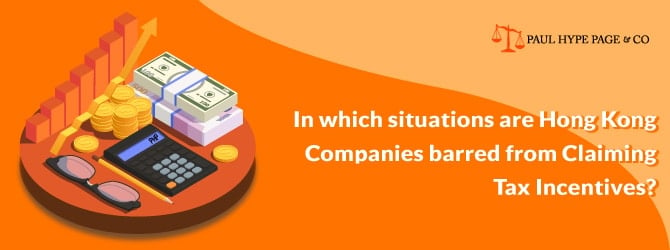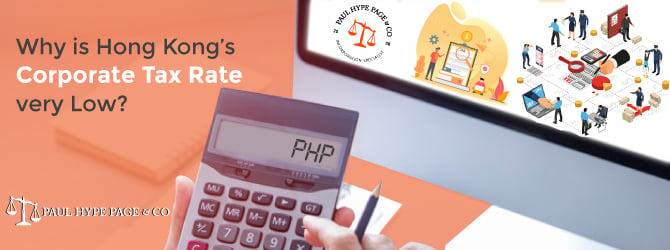What’s in this article
A corporate tax in Hong Kong is a regulatory fee charged on the profit of a firm. After deducting expenses and calculating operating costs including the Cost of Goods Sold (COGS) and depreciation from revenues, authorized tax rates are applied to calculate the legal obligation a business owes to the government. Rules regarding corporate taxation vary around the world.
All current expenses involved in the operation of a business are fully tax-deductible. Investments and real estate purchased with the intent of generating income for the business are also deductible.
Corporate tax in Hong Kong is payable by an individual carrying out a trade, operating a business, or providing a service.
This applies to all business entities, whether a corporation, partnership, or sole proprietorship. It is more beneficial for business owners to pay corporate taxes as compared to individual taxes as corporate taxes often come with returns deductions on medical insurance for families as well as fringe benefits including retirement plans and tax-deferred trusts
History of Hong Kong’s Corporate Tax
Before World War II, there was no taxation law in Hong Kong. The British imposed the idea of having corporate tax in Hong Kong forward support to be gifted to them in financial terms.
The business community was shaken up and they objected to such policies. The expatriates saw it coming and could only hope for the tax rates to be as low as possible.
The initial tax policy differed in its key aspects. At the time, there was a scheduled system of three separate taxes on three different kinds of income: property tax was charged on the rental value of a property, salary tax was charged on income from employment, and profits tax was charged on the profits of the business.
The corporate taxation system was based on the source principle, meaning that tax was only charged on income derived from a source in Hong Kong. In other words, income derived from outside Hong Kong was not taxable.
The Evolution of Hong Kong’s Tax System: From War Revenue to Inland Revenue Ordinance
The tax system designed was established by the War Revenue Ordinance 1940. The highest rate of tax was 10%.
After the war, the British and Hong Kong governments again proposed to establish a normal income tax and also planned to increase the rates of tax as high as possible.
A 50% tax rate was proposed, but the business community again opposed it, and the Chinese businessmen were unyielding in their opposition. They formed an organization called the Chinese Anti-Direct Tax Commission and marched in protest on the government house. They also wrote letters of complaint to the Colonial Office in London. As a compromise, the system devised in 1940 was revised in 1947.
Its name was changed to the Inland Revenue Ordinance from the War Revenue Ordinance, but its basic structure remained much the same and the highest rate of tax was 10%. Since then, the act has gone through many other amendments.
Current Corporate Tax Policies in Hong Kong
Hong Kong is lauded for its limited taxation and fair policies for foreign residents and corporations. The tax rate for corporations is 16.5%; it is 15% for unincorporated businesses.
Hong Kong’s simple, low-tax system made it the fourth-most business-friendly jurisdiction globally, according to the World Bank in 2019. Hong Kong uses a territorial system of taxation.
This means that tax is imposed only on profits generated from trade, business, or profession in Hong Kong. Profit tax does not apply to profits that have a source from outside Hong Kong. Hence, if one carries on a business in Hong Kong but the profits are derived from elsewhere, the person is free of tax liabilities. These laws are the same for residents and foreigners.
Corporate Taxation Rules and Two-Tier Profits Tax Regime in Hong Kong
If a Hong Kong resident generates business profits from elsewhere, then the resident is not subjected to corporate taxation, but if they are derived from Hong Kong, then the resident must pay taxes. Likewise, if a non-resident derives profits from Hong Kong, the non-resident will be liable to pay tax in Hong Kong but not otherwise. When the qualifying debt instrument (QDI) scheme was first introduced, a tax concession at 50% of the normal tax rate was granted.
However, Hong Kong follows a flat-rate principle of single-tier and double-tier corporations. As of April 1, 2018, a two-tier profits tax rate regime has been applied.
The two-tier profits tax regime applies to both corporations and unincorporated businesses by lowering the tax rate for the first HK$2 million of assessable profits. The first HK$2 million of profits will be taxed at one-half of the general tax rate which is 8.25% for corporations, however, the remaining profits will continue to be taxed at a 16.5% tax rate.
For unincorporated businesses, the first HK$2 million of profits will also be taxed at one-half of the tax rate, which is 7.5%, and the remaining profits will continue to be taxed at a 15% tax rate.
How to Pay Corporate Taxes in Hong Kong
Corporate taxes in Hong Kong are paid during the years of assessment that run from April 1 to March 31. The assessable profits for each financial year are evaluated by adjusting the accounting profits or losses according to existing tax laws and regulations. The month in which the accounting period ends generally determines the deadline by which the company must file its tax return and financial statements.
After filing within the given deadline, there are many options available for payment. In Hong Kong, one can pay corporate taxes by mail, telephone, Internet, ATM, banks, or in person. Business registration fees, stamp duties, and tax reserve certificates may also be involved.
Tax Payment Methods, Legal Actions, and Provisional Tax System for Overseas and Local Companies in Hong Kong
Taxpayers living abroad may pay taxes through bank drafts, crossed cheques in an overseas bank account, arranged payment in Hong Kong through a related party, or telegraphic transfer.
The continued negligence of taxes after two assessment notices will result in direct legal action as defined by Part XII of the Inland Revenue Ordinance for recovering the total outstanding amount.
Under the two-tier tax system, taxpayers are sometimes charged a provisional tax rate. The eligible taxpaying entity will be chargeable to the 2018/19 Provisional Profits Tax at the two-tiered tax rates.
Foreign incorporated companies are obliged to file tax returns in respect of their Hong Kong branch operations on the same basis period as a locally incorporated company. A notice of assessment is issued after the tax return has been filed with the concerned tax authority.
Tax collection of both the provisional tax of the preceding year and the final profits tax of the current year are generally filed together.
Provisional tax will be payable during the tax year based on the preceding year’s tax liabilities. Provisional tax for the current year is issued with the assessment notice for the recently ended tax year.
The due dates for the payment of the final tax and the provisional tax are specified on the combined notice issued.
Exemptions
In Hong Kong, there are certain exemptions for corporate taxes under specific conditions. Among these are publicly offered funds by the Securities and Futures Commission (SFC) of Hong Kong.
Schemes meeting regulatory authority requirements under an acceptable regime are exempt from profits tax in Hong Kong. SFC-licensed fund managers arrange qualified funds for tax exemption on profits, focusing on offshore investments and ships in Hong Kong.
Offshore means that the company has no customers or suppliers for their business in Hong Kong, the employees of the business entity operate their business solely outside of Hong Kong, the company provides no services in Hong Kong, the business entity signs contracts and negotiates with its suppliers and customers outside of Hong Kong, the company’s products do not enter Hong Kong, the company has no employees based in Hong Kong, and the owner or any overseas employees rarely visit Hong Kong.
Tax Exemptions and Concessions for Offshore Companies and Debt Instruments in Hong Kong
Offshore companies do not have to pay capital tax. Taxation on gains that the business makes from the sale of stocks, bonds, precious metals, and property, is considered exempt. Businesses do not have to pay value-added taxes or sales taxes.
Hong Kong imposes no withholding tax on dividends, no interest on companies, and no social security benefits collection. Dividends from offshore companies are tax-exempt, while property tax is 15% on 80% of rental income from real estate businesses.
Since May 24, 1996, interest income and trading profits from Qualified Debt Instruments with under five years’ maturity get a 50% tax concession.
From 2003-04, the concession covers medium-term debt instruments issued after March 5, 2003, with 3 to 7 years’ maturity. Interest income and trading profits from long-term debt instruments issued after March 5, 2003, with under seven years’ maturity are tax-free.
Hong Kong’s Taxation Compared to Those of Other Countries
Hong Kong is sometimes regarded as a tax haven for business owners and workers alike. This is partly because the government has huge fiscal reserves equivalent to more than 12 months of expenditure.
The interest received on these reserves is a crucial source of revenue and helps keep the tax burden light. Ever since the time of 19th-century opium dealers, Hong Kong has been famous as a tax-free port. Hong Kong’s low taxes, duty-free status, strong capital market, and minimal government interference attract many foreign investors.
Hong Kong is one of the most business-friendly countries in the world. In Asia, its primary competitors in this regard are Qatar, the United Arab Emirates, and Singapore.
Factors Behind Hong Kong’s Economic Strength and Attractive Tax Environment
However, Singapore has a goods and services tax as well as a remittance tax from foreign profits. Taxation in Hong Kong is proportional to income. The city’s most affluent pay the most corporate tax and low-income households are hardly taxed at all. Salaries tax ranges from 2% for incomes under HK$40,000 to 17% for earnings over HK$200,001.
The country keeps government reserves flowing by selling government-owned land to private industries and businesses. In the 2017-18 financial year, 27% of Hong Kong’s HK$612 billion revenue came from land sales. Hence, the government also makes money by leasing land.
Hong Kong is a special administrative region of China and it is one of the leading financial hubs of Asia. Many of the world’s leading banks have their business operations there.
The small island also holds the largest stock exchange market in Asia. Hong Kong’s separate currency simplifies transactions for foreign investors, avoiding concerns with the Chinese yuan. These factors contribute to Hong Kong’s high ranking on global lists compared to neighbouring Asian countries.
FAQs
This is a method of taxation that involves income being taxed twice starting with the first HK$2 million of profits taxed at one-half of the general tax rate of 8.25% for corporations, and the rest of the profits are taxed at a 16.5% tax rate. At the end of the day, it lowers the taxation rate for the first HK$2 million.
The corporate tax in Hong Kong has evolved in terms of rates changing from the initial 10%, a proposition of 50%, and finally to the current 16.5%. However the method of taxation has not changed, it is still taxed from profits gained within the territory. The name has also changed from War Revenue Ordinance to Inland Revenue Ordinance.
No. The taxation process for both locals and foreigners are more or less the same. For example, income generated out of Hong Kong by either a local resident or foreigner is not taxed.
Revenue generated from corporate taxes in Hong Kong goes into the running of government affairs just like in any other country.
It is worth noting that one of the reasons why Hong Kong is considered a tax haven is because the Hong Kong government has several reserves that generate revenues, hence it levies favourable corporate taxes. Some of these government reserves come from the sale or leasing of government-owned properties.
Some of the benefits of corporate taxes in Hong Kong is that they often come with:
- Returns deductions on medical insurance for families, and
- Fringe benefits such as retirement plans and tax-deferred trusts.






